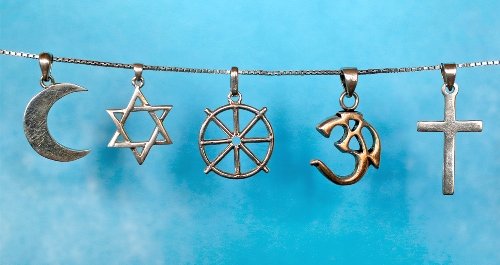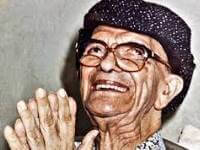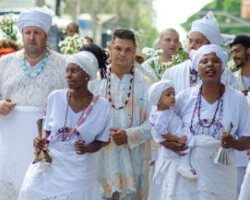Blog
Religions in Brazil: History and Local Culture
- Thursday April 29th, 2021
- Posted by: Amanda Ennes
- Category: Brazil

Brazil is a spiritually rich society that relies heavily on religion and faith in its culture and daily life. According to the 2010 census, 64% of the population in Brazil identify as Catholics, while 22% follow Protestantism branches. Even so, other Afro-Brazilan religions still have great importance to the Brazilian culture. They are fundamental in holidays and major festivities around Brazil.
As a matter of fact, religions in Brazil complement each other. Even people who consider themselves Catholics, also have faith in gods from Afro-Brazilan religions. The mix between Christianity, spiritism, and African religions is what makes the Brazilian faith the powerful thing it is.
Table of Contents
ToggleCatholicism
 According to the Brazilian Institute for Geography and Statistics (IBGE), Brazil has the largest number of Catholic followers in the world. Around 123,000,000 Brazilians declare themselves as Catholics. That represents 64.6% of the population in Brazil.
According to the Brazilian Institute for Geography and Statistics (IBGE), Brazil has the largest number of Catholic followers in the world. Around 123,000,000 Brazilians declare themselves as Catholics. That represents 64.6% of the population in Brazil.
The Basilica of Our Lady of Aparecida in São Paulo is the second largest church in the world. It is only smaller than the Saint Peter’s Basilica in Vatican City.
The power of the religions in Brazil is also seen in the national holidays. Almost 50% of the days off in Brazil are Christian holidays. Among those, we can point out Our Lady of Aparecida Day on October 12th, Good Friday, and the Feast of Corpus Christi.
Cities also have their own Christian holidays. In Rio de Janeiro for example, we celebrate Saint George day on April 23rd.
Catholic schools are also fairly popular around Brazil. According to the National Catholic Education Association, there are around 2,000 schools and 130 universities that follow a Catholic education method in Brazil, with a total of 2.5 million students altogether.
Catholicism is even more present in the Northeast and South regions of Brazil. In the state of Piauí, for example, 87.9% of the population declare themselves as Catholics.
It is also common to notice an overlay of Afro-Brazilian religions with Catholic beliefs and practices. However, Brazilians do not find this inconsistent with their faith. It is fairly common for Brazilian Catholics to celebrate Iemanjá and Saint George as well, orixás heavily celebrated by Umbanda and Candomblé.
Protestantism
 Dutch people brought Protestantism to Brazil between 1624 and 1625. Back then, this religion was mainly spread among the indigenous people.
Dutch people brought Protestantism to Brazil between 1624 and 1625. Back then, this religion was mainly spread among the indigenous people.
Protestantism has been growing fast around Brazil. As reported by IBGE, in 1970, there were 4.8 million protestants in the country. In 1991, records show 13.7 followers, and in 2010, Brazil has 42.3 million protestants. It is safe to say Protestantism is one of the religions that grow the most in Brazil.
Among those 42.3 million followers, Protestantism is divided into several branches, such as the Baptists, Adventists, Lutherans, Methodists, Pentecosts, and more. The largest group of Pentecostal denominations in Brazil is the Assemblies of God, with over 12 million followers in the country.
Spiritism
 French educator Allan Kardec started Spiritism as a religion in the 19th century. Brazilians also call it Kardecism because of him.
French educator Allan Kardec started Spiritism as a religion in the 19th century. Brazilians also call it Kardecism because of him.
The Spiritist philosophy suggests that humans are immortal spirits that temporarily inhabit physical bodies for several necessary incarnations to attain moral and intellectual improvement.
Among the beliefs of Spiritism, we can highlight the existence of God, the immortality of the spirit, and reincarnation. People who follow Spiritism also believe in the communication between living spirits and disincarnated spirits.
In the 1960s, the growth of the spiritist doctrine in Brazil was boosted. Medium Chico Xavier started to popularize spiritism around Brazil through his psychographic work and books. Xavier’s popularity remained unchanged in Brazil until his death in 2002.
Along with Afro-Brazilian religions in Brazil, Spiritisms still suffer much prejudice on the part of the Christian community in the country.
Candomblé and Umbanda
 Candomblé and Umbanda are Afro-Brazilian religions and are very popular all around Brazil. They have similarities, such as following the laws of nature, veneration of spirits known as orixás, spirit incorporation, and more. However, these two religions in Brazil also have some differences.
Candomblé and Umbanda are Afro-Brazilian religions and are very popular all around Brazil. They have similarities, such as following the laws of nature, veneration of spirits known as orixás, spirit incorporation, and more. However, these two religions in Brazil also have some differences.
African slaves brought Candomblé to Brazil at the end of the 16th century. They believe orixás are their divine ancestors, gods of nature representing a unique God creator of everything. Moreover, Candomblé entails the sacrifice of animals to orixás, and the most common form of divination in Brazil is the Jogo dos Búzios. By throwing some cowrie shells, Jogo dos Búzios represents the means by which the faith contacts the divinities.
On the other hand, Umbanda is a religion created in Brazil in the early 20th century. Besides following the laws of nature, it also heavily believe in the principles of fraternity and charity. For Umbanda followers, the orixás are ancestral spirits, the manifestation of the unique God. Furthermore, they believe the incorporation of spirits during their works are of people who return to the Earth to practice charity. Psychics are responsible for the incorporation of spirits and for the blessing and spiritual cleansing of other members.
Practitioners of Candomllé and Umbanda also make offerings the orixás. These offerings include candy, toys, tobacco, alcohol, perfume, and food. It all depends on the religion and the orixá to which the gift is being offered to.
Experience the Brazilian culture while studying Portuguese at Caminhos Language Centre. We have much more than Portuguese classes for foreigners, we offer a complete cultural immersion in Brazil. We can also help you with accommodation in Rio de Janeiro and student visa for Brazil.


 Deutsch
Deutsch Français
Français Português
Português Español
Español

Quick note: identify not intensify.
And no one uses “recess” outside the school setting. A more appropriate word would be day off or official holiday.
Thanks
Muito bacana o texto.
Conheci a cultura do Candomblé, muito incessante.
Sou umbandista e adoro ler sobre minha religião 🙂
I’m a Christian from Brazil 🙂